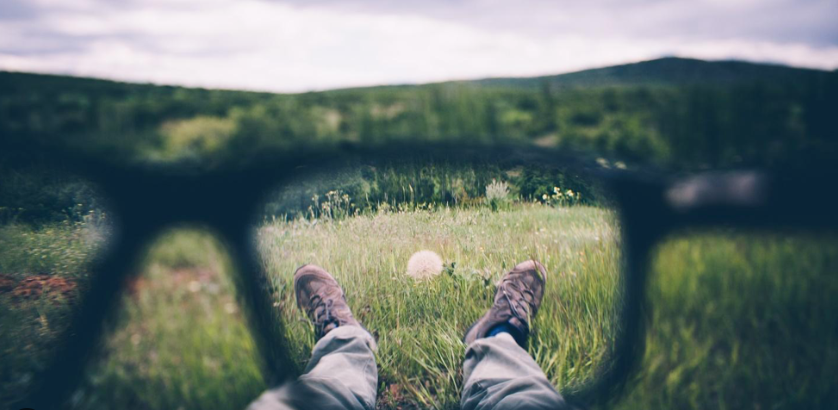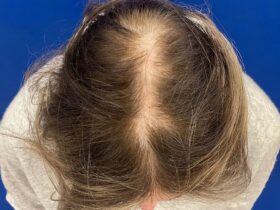As we grow older, our eyesight begins to decline. This is a natural process that happens over time, and there’s nothing you can do to prevent it. In fact, it’s actually quite common for people in their late 50s or 60s to start losing peripheral vision. Peripheral vision is the ability to see things around the sides of your body. It’s important because it allows you to navigate safely in crowded environments and read signs while driving. If you notice that you’re losing peripheral vision, don’t panic. There are steps you can take to protect your vision and keep your eyesight as good as possible for as long as possible. Read on for tips on how to cope with eye disease and keep your vision intact for as long as possible.
The Symptoms of Eye Disease
Eye disease can cause a variety of symptoms, which can range from mild to severe. Symptoms may include problems with vision, headaches, fatigue, and sensitivity to light. Eye disease can also lead to the loss of peripheral vision.
Read More: Sanpaku Eyes
The Different Types of Eye Diseases
There are many types of eye diseases, and each can have different symptoms. Some common eye diseases include:
-Cataracts: Clouding or fogging of the lens of the eyes due to a build-up of fluid. Cataracts can cause decreased vision, especially in direct sunlight.
-Glaucoma: A condition that can increase pressure in the eyeball dues to an increase in the size or number of optic nerve fibers. Glaucoma can eventually lead to blindness if not treated.
-Retinitis Pimentos: A degenerative eye disease that causes the optic nerve to degenerate, resulting in a loss of vision and eventual blindness.
-uveitis: Inflammation of the uvea (the middle layer of the retina), which is responsible for sight in people younger than 40 years old.
Causes of Eye Disease
There are many potential causes of eye disease, but most commonly, the cause is not known. There are a number of risk factors for developing various types of eye disease, including age, gender, family history, and ethnicity. Some conditions can be caused by infections or injuries, while others may be the result of lifestyle choices or habits.
One of the primary ways that eye diseases can develop is through the accumulation of harmful debris and fluid in the eyes. This can occur as a result of age, injury, or ongoing inflammation. Over time this can cause damage to both the macula (the part of your retina responsible for central vision) and the optic nerve. Other causes of eye disease include genetic mutations, environmental factors such as smoke and pollution, and medical conditions such as diabetes or high blood pressure.
If you think you may have an eye condition, it is important to consult with an optometrist or ophthalmologist. They will be able to evaluate your symptoms and provide you with a diagnosis based on their examination. In some cases, further tests will be necessary in order to determine the specific cause of your condition. If you are experiencing significant vision loss due to eye disease, it is essential that you seek immediate care.
Read More: Sanpaku Eyes
How to Diagnose Eye Disease
There are many ways to diagnose eye disease, but the most common is by performing a physical exam. Other methods include looking at an eye chart, a Snellen chart, or an ophthalmoscope. Sometimes a doctor will request tests like a CAT scan or MRI to check for specific abnormalities.
If you think that your eye is hurting, you should see a doctor right away. Eye pain can be caused by many different diseases and can signal serious issues. If you have any questions about your symptoms or if you suspect that you have an eye disease, please talk to your doctor.
How to Treat Eye Disease
There are many ways to treat eye disease, and the best way for you to find relief is to consult with your doctor. However, some common treatments include:
Applying artificial tears to the eyes several times a day
Wearing sunglasses in bright light or during long exposures to sunlight
Using an over-the-counter cold remedy such as low-dose ibuprofen or acetaminophen
Refraining from smoking and drinking alcohol
Seeing a doctor if there are severe symptoms, such as changes in vision, redness, or pain in the eye
Prevention of Eye Disease
Prevention of Eye Disease
One of the most important steps you can take to prevent eye disease is to keep your eyes healthy by getting regular eye exams. A yearly eye exam can detect signs of early-onset macular degeneration, cataracts, and other vision problems. In addition, make sure you use sunscreen with an SPF rating of at least 30 when outside in the sun. Finally, eat a balanced and healthy diet that includes plenty of fruits and vegetables.
Conclusion
If you have any eye disease that causes no peripheral vision, please see an ophthalmologist as soon as possible. Many of the treatments for eye diseases such as glaucoma can be reversed by early intervention.











